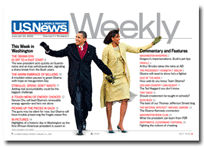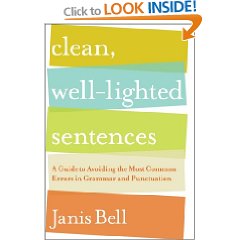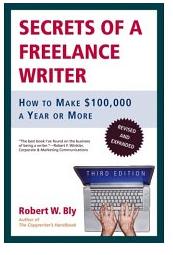 Before I launch into this, understand that no single freelancer experience triggered my urge to write this entry. Instead it comes at the realization that every single freelancer I have ever hired has made some of these mistakes. 99% of the time, they are completely avoidable.
Before I launch into this, understand that no single freelancer experience triggered my urge to write this entry. Instead it comes at the realization that every single freelancer I have ever hired has made some of these mistakes. 99% of the time, they are completely avoidable.
Editors have precious little time and it costs every time we have to stop and tell a freelancer stuff like this. If you want to become an editor’s favorite–and quickly–all you have to do to get started is make sure you aren’t doing any of the following:
5. Submitting Copy Full Of Mistakes. I can’t tell you have many times I’ve regretted yoking myself to people who seem to have a pathological fear of spell check AND who can’t tell the difference between a possessive and a contraction. Folks, the apostrophe has been abused enough, don’t you think? Can you please make some DIFFERENT mistakes from now on? A little variety would be nice. Here’s the trick. If you don’t know how to properly use the apostrophe, DON’T GUESS. Stop using contractions, for a start. The contraction for “it is” is “it’s”. The reason it is called a contraction is because it is an abbreviated word–the apostrophe has a SPECIFIC purpose.
4. Not Telling The Editor If A Deadline Won’t Work. When the editor says “This piece is due in 14 days,” and you accept, the editor assumes that you understand the deadline is firm and will live up to it. The freelancer who has trouble along the way does well to let the editor know as soon as it’s apparent the deadline won’t be met. Letting the deadline fly by and THEN explaining that your sick cat had a pedicure that went horribly wrong is bad for the editor, but it is worse for YOU. Always try to establish yourself as a reliable “go-to” person, even when you have to blow a deadline. Anything less, quite frankly, means you get less work from that editor.
3. Not Listening To Specific Direction From Your Editor. I have worked with writers I specifically told, in no uncertain terms, to stop using specific personal cliches in their copy. The “personal cliche” is a line that appears in a writer’s work again and again. For some, it’s the phrase, “You can’t go wrong.” For others, it’s stuff like “Additionally, the xyz is an ABC.” How do you think it makes me feel about your work to see those cliches coming back a week after I told you to edit them out of your copy? Yeah–you guessed it–it makes me think you’re a moron who can’t follow instructions. I can forgive it once or twice, because people forget in the beginning. You have to re-emphasize it a few times before some people get it. But folks, if you KEEP DOING the stuff your editor tells you NOT to do, you get branded as an idiot.
2. Not Submitting “Stand Alone” Invoices. I can’t tell you how many freelancers send me invoices in e-mails that discuss other business. Sounds petty and insignificant to complain about that, doesn’t it? But folks, remember that every editor in the business is swamped and has six different issues that all need addressing at once. When you send along an invoice in an e-mail that is cluttered with other issues that need taken care of, it’s VERY easy for a distracted editor to overlook the fact that your invoice is in there. Don’t delay your money–send that invoice ALL BY ITSELF and clearly marked as such. Otherwise you WILL have to go back and remind the editor to pay you–it’s just a matter of time before it happens.
1. Not Submitting Your Payment Address In Your Invoice. You would NOT BELIEVE how many freelancers have sent me invoices with no payment address. What the hell? How am I supposed to pay this? What’s more, if it’s a larger operation with an accountant, how is THE ACCOUNTANT supposed to know? Don’t make this mistake–it slows down your pay, and in this economy who can afford that? Here’s the kicker–EVERY SINGLE FREELANCER I have EVER hired has sent me an invoice with no payment address. Usually it’s the first one, too. Even if we have paid you a hundred times in a row, send that address in your invoice. You never know when the person who pays the freelancers gets sick or goes on vacation and hands the job off to somebody else.

 Faithful FZ readers know I’ve been saying the bell tolls for print mags for quite some time, but Digital Magazine News begs to differ. In their
Faithful FZ readers know I’ve been saying the bell tolls for print mags for quite some time, but Digital Magazine News begs to differ. In their 

